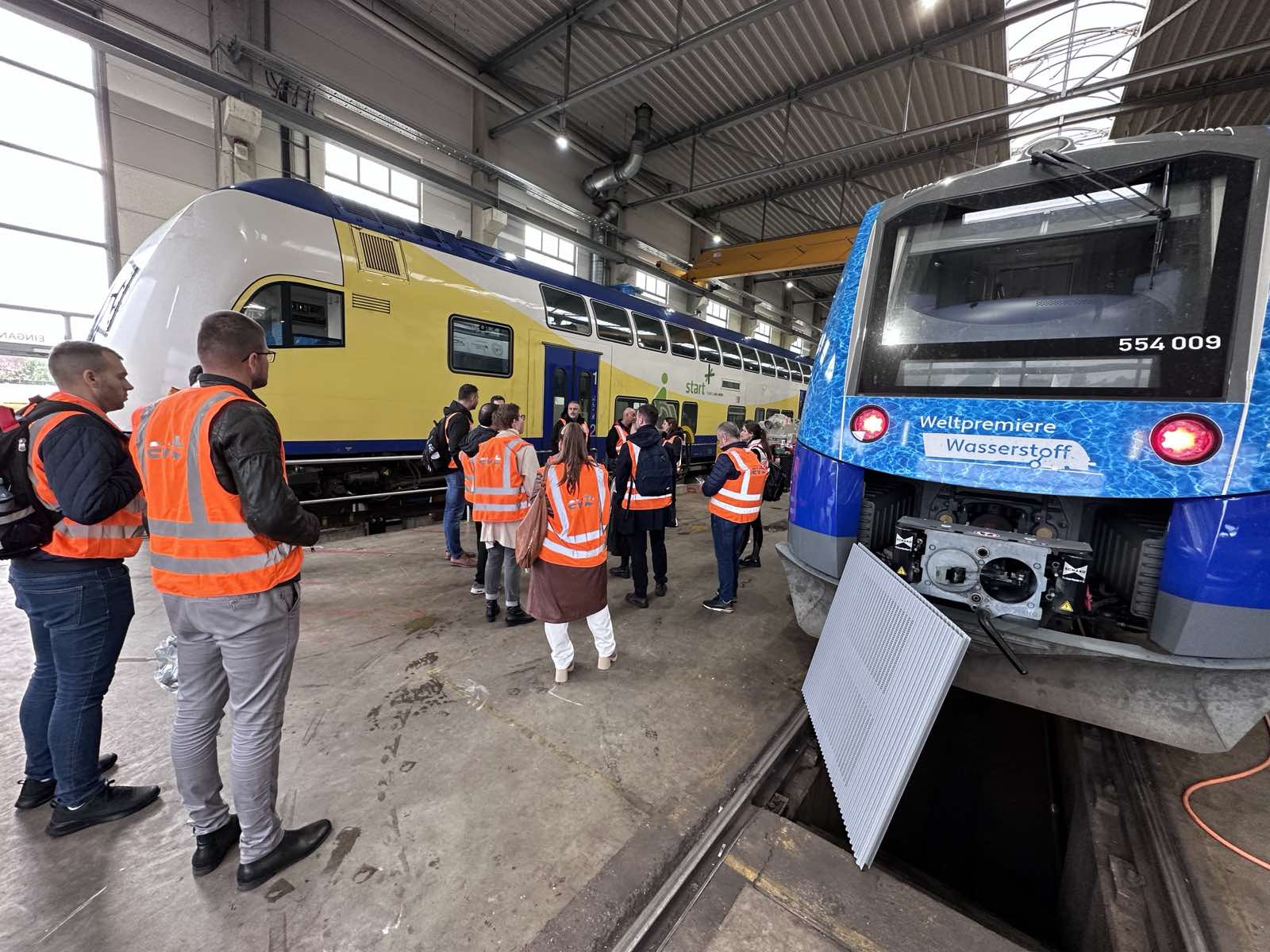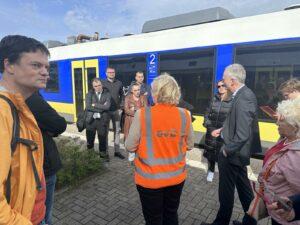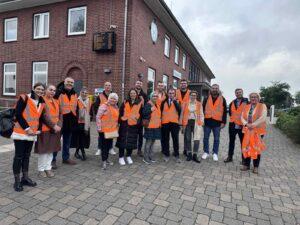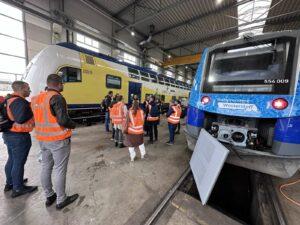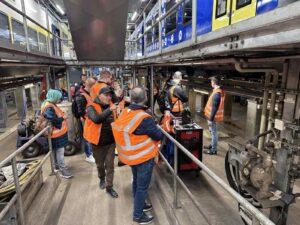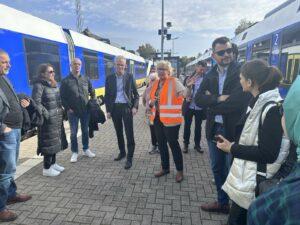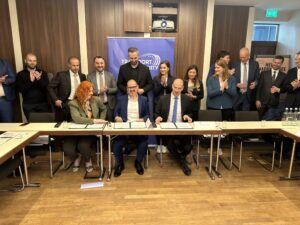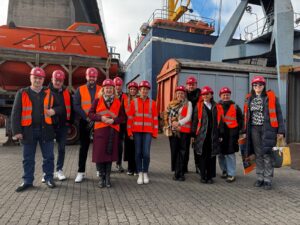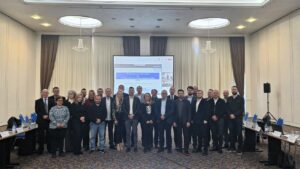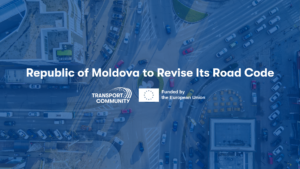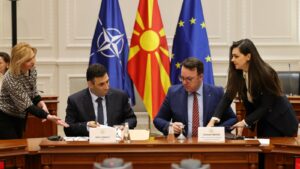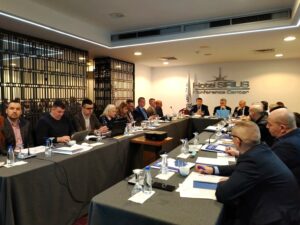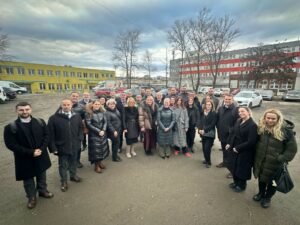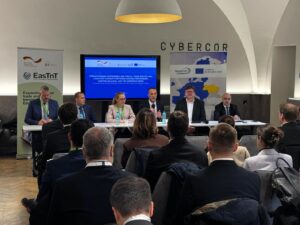BREMEN – In partnership with the European Union Agency for Railways (ERA) and the Association of the European Rail Supply Industry – UNIFE, the Transport Community organised a study visit for railway experts from the Western Balkans, the Republic of Moldova, and Türkiye, in Germany from 10 to 12 October, focusing on alternative fuels for railways, with a specific emphasis on hydrogen fuel cells and battery electric technologies.
The participants explored pioneering technologies, such as hydrogen fuel cells and battery electric systems, which have the potential to revolutionise rail travel by significantly reducing its environmental impact.
They also explored cutting-edge technologies at renowned research and development centres, witnessing the latest breakthroughs and gaining first-hand insights by observing hydrogen-powered trains and battery electric locomotives in real-world scenarios. This experience allowed them to understand the advantages and challenges of these innovative technologies and their potential to reshape the rail transportation landscape.
The study visit was also an interactive platform for engaging discussions with industry experts and engineers who are at the forefront of shaping the future of rail transportation. These discussions provided valuable insights into the practical aspects of implementing alternative fuel technologies in rail systems.
Germany’s experiences serve as a blueprint for regions aspiring to adopt sustainable and eco-friendly rail transportation solutions. This study visit underscored the potential of hydrogen fuel cells and battery electric propulsion systems to transform rail transportation into a sustainable and environmentally friendly mode of travel, aligning seamlessly with broader European efforts to enhance the sustainability of rail transportation.
The visit has been organised within the “Continuation of support to the IPA II beneficiaries by the European Union Agency for Railways (ERA)” project, supported by the European Commission’s Directorate General DG NEAR.

